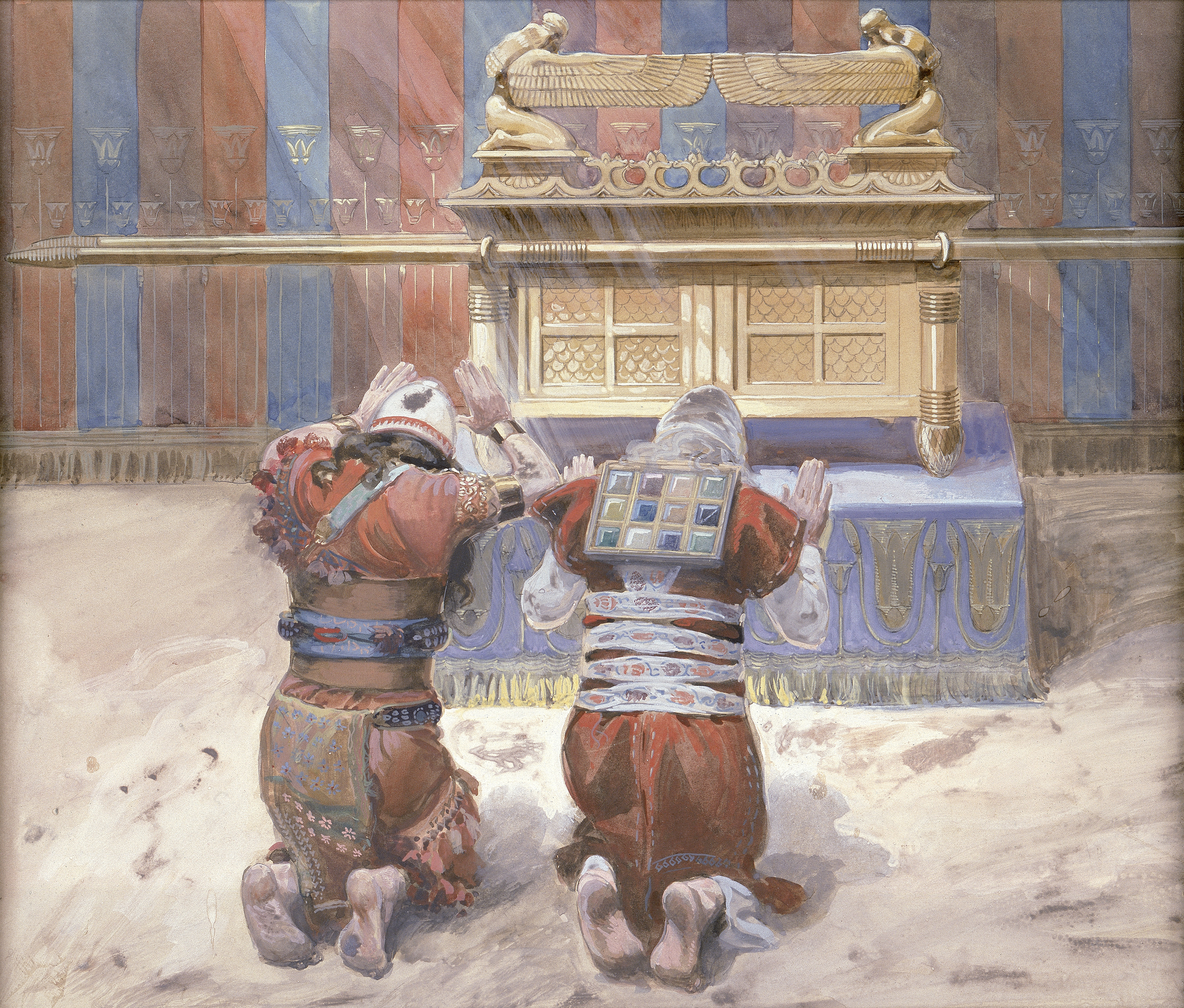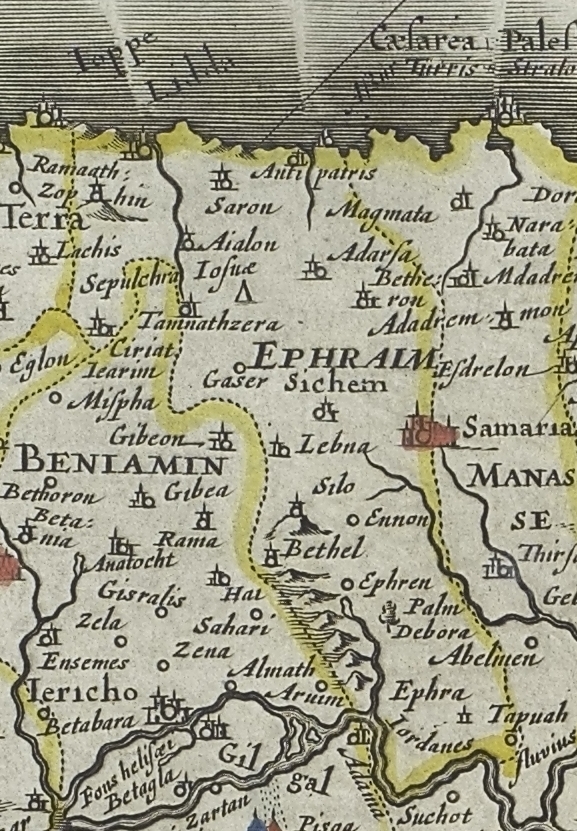|
Azaziah
Azaziah () may refer to: * One of the Levitical musicians during the transportation of the Ark of the CovenantI Chronicles 15:21. * The father of Hoshea, who was made ruler over the EphraimitesI Chronicles 27:20. * A Levite who had charge of the temple offerings in the days of Hezekiah Hezekiah (; hbo, , Ḥīzqīyyahū), or Ezekias); grc, Ἐζεκίας 'Ezekías; la, Ezechias; also transliterated as or ; meaning "Yah shall strengthen" (born , sole ruler ), was the son of Ahaz and the 13th king of Judah according to th ...II Chronicles 31:13. References {{eastons, wstitle=Azaziah Set index articles on Hebrew Bible people ... [...More Info...] [...Related Items...] OR: [Wikipedia] [Google] [Baidu] |
YHWH
The Tetragrammaton (; ), or Tetragram, is the four-letter Hebrew theonym (transliterated as YHWH), the name of God in the Hebrew Bible. The four letters, written and read from right to left (in Hebrew), are ''yodh'', '' he'', '' waw'', and ''he''. The name may be derived from a verb that means "to be", "to exist", "to cause to become", or "to come to pass".Translation notes for While there is no consensus about the structure and etymology of the name, the form ''Yahweh'' is now accepted almost universally, though the vocalization '' Jehovah'' continues to have wide usage. The books of the Torah and the rest of the Hebrew Bible except Esther, Ecclesiastes, and (with a possible instance of the short form in verse 8:6) the Song of Songs contain this Hebrew name. Observant Jews and those who follow Talmudic Jewish traditions do not pronounce nor do they read aloud proposed transcription forms such as ''Yahweh'' or ''Yehovah''; instead they replace it with a different term, ... [...More Info...] [...Related Items...] OR: [Wikipedia] [Google] [Baidu] |
Ark Of The Covenant
The Ark of the Covenant,; Ge'ez: also known as the Ark of the Testimony or the Ark of God, is an alleged artifact believed to be the most sacred relic of the Israelites, which is described as a wooden chest, covered in pure gold, with an elaborately designed lid called the mercy seat. According to the Book of Exodus, the Ark contained the two stone tablets of the Ten Commandments. According to the New Testament Book of Hebrews, it also contained Aaron's rod and a pot of manna. The biblical account relates that approximately one year after the Israelites' exodus from Egypt, the Ark was created according to the pattern given to Moses by God when the Israelites were encamped at the foot of Mount Sinai. Thereafter, the gold-plated acacia chest was carried by its staves by the Levites approximately 2,000 cubits (approximately ) in advance of the people when on the march. God spoke with Moses "from between the two cherubim" on the Ark's cover. Biblical account Cons ... [...More Info...] [...Related Items...] OR: [Wikipedia] [Google] [Baidu] |
Hoshea
Hoshea ( he, הוֹשֵׁעַ, ''Hōšēaʿ'', "salvation"; akk, 𒀀𒌑𒋛𒀪 ''A'úsiʾ'' 'a-ú-si-ʾ'' la, Osee) was the nineteenth and last king of the Israelite Kingdom of Israel and son of Elah (not the Israelite king Elah). William F. Albright dated his reign to , while E. R. Thiele offered the dates 732–723 BCE. Accession to the throne Assyrian records confirm the Biblical account of how he became king. Under Ahaz, Judah had rendered allegiance to Tiglath-Pileser III of Assyria, when the Northern Kingdom under Pekah, in league with Rezin of Aram-Damascus, had attempted to coerce the Judean king into joint action against Assyria. Hoshea, a captain in Pekah's own army, placed himself at the head of the Assyrian party in Samaria; he then removed Pekah by assassination; Tiglath-pileser rewarded Hoshea by making him king over Ephraim (a name used here for the entire northern kingdom), which had been reduced to smaller dimensions. An undated inscription of Tiglath-Pil ... [...More Info...] [...Related Items...] OR: [Wikipedia] [Google] [Baidu] |
Ephraimites
According to the Hebrew Bible, the Tribe of Ephraim ( he, אֶפְרַיִם, ''ʾEp̄rayīm,'' in pausa: אֶפְרָיִם, ''ʾEp̄rāyīm'') was one of the tribes of Israel. The Tribe of Manasseh together with Ephraim formed the ''House of Joseph''. It is one of the ten lost tribes. The etymology of the name is disputed.For the etymology, see Ephraim as portrayed in biblical narrative According to the Bible, the Tribe of Ephraim is descended from a man named Ephraim, who is recorded as the son of Joseph, the son of Jacob, and Asenath, the daughter of Potiphera. The descendants of Joseph formed two of the tribes of Israel, whereas the other sons of Jacob were the founders of one tribe each. The Bible records that the Tribe of Ephraim entered the land of Canaan during its conquest by Joshua, a descendant of Ephraim himself. However, many archeologists have abandoned the idea that Joshua carried out a conquest of Canaan similar to that described in the Book of Joshua, seeing ... [...More Info...] [...Related Items...] OR: [Wikipedia] [Google] [Baidu] |
Levite
Levites (or Levi) (, he, ''Lǝvīyyīm'') are Jewish males who claim patrilineal descent from the Tribe of Levi. The Tribe of Levi descended from Levi, the third son of Jacob and Leah. The surname ''Halevi'', which consists of the Hebrew definite article "" ''Ha-'' ("the") plus ''Levi'' (Levite) is not conclusive regarding being a Levite; a titular use of HaLevi indicates being a Levite. The daughter of a Levite is a " ''Bat Levi''" (''Bat'' being Hebrew for "daughter"). The Tribe of Levi served particular religious duties for the Israelites and had political (administering cities of refuge) and educational responsibilities as well. In return, the landed tribes were expected to support the Levites with a tithe (), particularly the tithe known as the First tithe, ''ma'aser rishon''. The Kohanim, a subset of the Levites, were the priests, who performed the work of holiness in the Temple. The Levites, referring to those who were not Kohanim, were specifically assigned to ... [...More Info...] [...Related Items...] OR: [Wikipedia] [Google] [Baidu] |
Hezekiah
Hezekiah (; hbo, , Ḥīzqīyyahū), or Ezekias); grc, Ἐζεκίας 'Ezekías; la, Ezechias; also transliterated as or ; meaning "Yah shall strengthen" (born , sole ruler ), was the son of Ahaz and the 13th king of Judah according to the Hebrew Bible. Harris, Stephen L., ''Understanding the Bible''. Palo Alto: Mayfield. 1985. "Glossary", pp. 367–432 In the biblical narrative, Hezekiah witnessed the destruction of the northern Kingdom of Israel by Sargon's Assyrians in and was king of Judah during the siege of Jerusalem by Sennacherib in 701 BCE.Encyclopædia Britannica (2009)Hezekiah Encyclopædia Britannica Online, 12 November 2009. Hezekiah enacted sweeping religious reforms, including a strict mandate for the sole worship of Yahweh and a prohibition on venerating other deities within the Temple of Jerusalem. He is considered a very righteous king in both the Second Book of Kings and the Second Book of Chronicles. He is also one of the more prominent kings of Ju ... [...More Info...] [...Related Items...] OR: [Wikipedia] [Google] [Baidu] |


